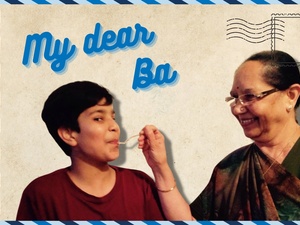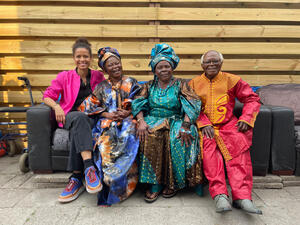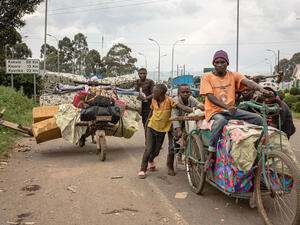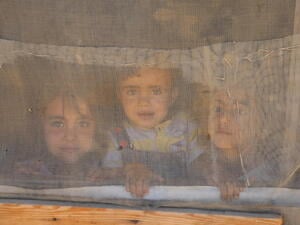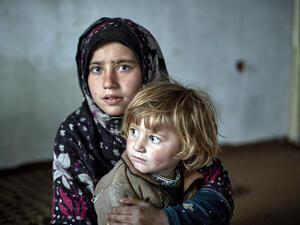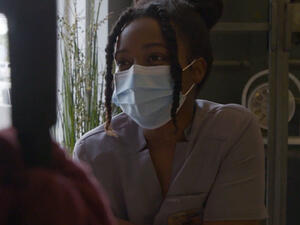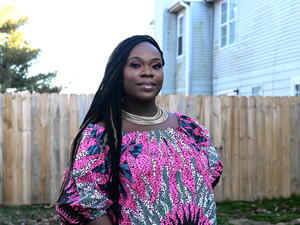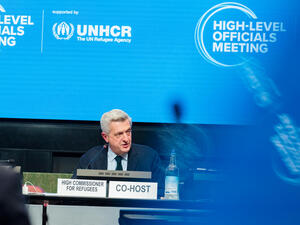A photographer's encounter with innocence in a South Sudan refugee camp
A photographer's encounter with innocence in a South Sudan refugee camp
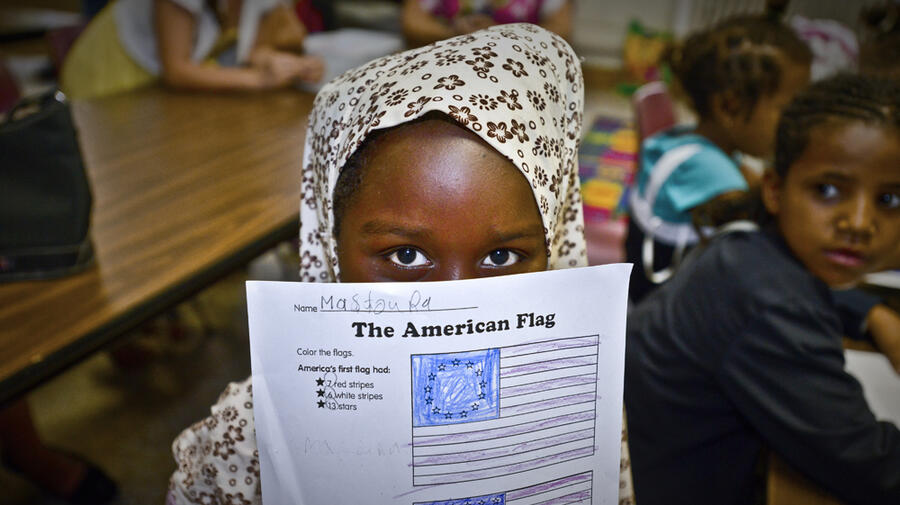
Seven-year-old Mastoura Hasan, a resettled refugee from Sudan now a resident of Louisville in Kentucky, proudly shows her drawing of the Union flag while attending a cultural awareness class. Mastoura fled with her father, mother and three brothers from the Sudan amidst heavy fighting. They arrived in the United States last December.
WASHINGTON, D.C., United States, July 22 (UNHCR) - Acclaimed British photographer and cameraman Sebastian Rich has worked in current affairs for more than 30 years. After joining Independent Television News (ITN) in 1980, he covered some of the world's biggest breaking stories. He later pursued a freelance career. Over the years he has also spent time focusing on humanitarian issues, and this year he began collaborating with the UN refugee agency in Africa and the United States. He reflects here on his craft, after a moving visit to the field:
"I have tattoos; far too many. But doubts over my decision to be inked extensively vanish in the world's refugee camps. Children from many cultures have never seen tattoos and the sight of this rather large photographer, sleeves rolled up, with a veritable cornucopia of butterflies, flowers, and dolphins, causes much intrigue and mirth in little eyes.
"For a few minutes while I am photographing and playing with the little ones they forget the horrors that brought them here, intrigued by the ink. The braver ones touch my arms and run away, then come back cautiously with huge smiles. Then it starts, all the children giggling at once, my interpreter bombarded with a hundred questions about my tattoos, as their smiles grow and grow.
"Recently in a United Nations refugee agency camp in Maban County, South Sudan, a young girl of about seven years had been following me around as I photographed daily life. Every now and then a tiny warm hand would hold me gently by the wrist. I looked down to see her intently studying several butterflies. I asked my interpreter Mohammad what she was saying, to which he replied: "It is nothing Sebastian, just silly children's things."
"I persisted and eventually Mohammad, somewhat embarrassed, told me. "She is saying it is so dirty in the camp with all the dust that she would like to take the butterflies from your arms and put them in her pockets to keep the wings clean and soft!"
"I stopped in my tracks. I have seen so much horror in my time as a photographer and most of it, thankfully as a self-protection mechanism, has been filtered out, but this little girl's innocence caused my world for a few minutes to crumble around me.
"That evening in the camp, while editing my images, it struck me that I had never followed up refugee stories. News agencies on the whole don't want the other side of the coin - the success stories, the new lives found - these are not dramatic pictures of the dying, the starving, and the frightened.

The resettled Sabri family from Iraq. Father Ali and three of his daughters on the Abraham Lincoln statue in Louisville, Kentucky.
"But is that all we ever want to see? Why is good news so far down the running order? Sadly, I am part of the problem. Over the years I have photographed the horror and the hell because I know that there is an appetite for it. How sad is that!
"In the last few days UNHCR has given me the opportunity to photograph resettled refugees in the United States in Louisville, Kentucky, and Charlotte, North Carolina. And what an enormous pleasure it has been - capturing new and exciting lives, people on the brink of discovery. Burmese, Bhutanese, Vietnamese, Afghans, Somalis, Congolese, Iraqi and Pakistani ... the list is almost endless, with the US taking in more than half of the world's resettled refugees.
"From the South Vietnamese pilot who now helps other refugees and has been in Kentucky for 30 years, to a recent arrival from Democratic Republic of the Congo who had been in Charlotte, North Carolina just weeks, neither subject was photographed in a dramatic setting. In fact quite the opposite, mundane but new daily life rituals. The back-story behind the images of course is one of happiness found and an overwhelming sense of real freedom in their new home.
"For me this week has been a journey that has completed a circle. To see the other side of the coin - hope realized and life given new meaning - lives without fear. These thoughts were often beyond comprehension in the camps.
"These stories have tempered my cynicism somewhat, about man and war, and have shown me that there are good people that do succeed in bringing happiness and a safe haven to others. For this, I thank UNHCR and its partners deeply.
"I feel now that I might, just might, be part of the solution not the problem, sometimes. Alas, my tattoos do not have quite the same cachet in the United States.

